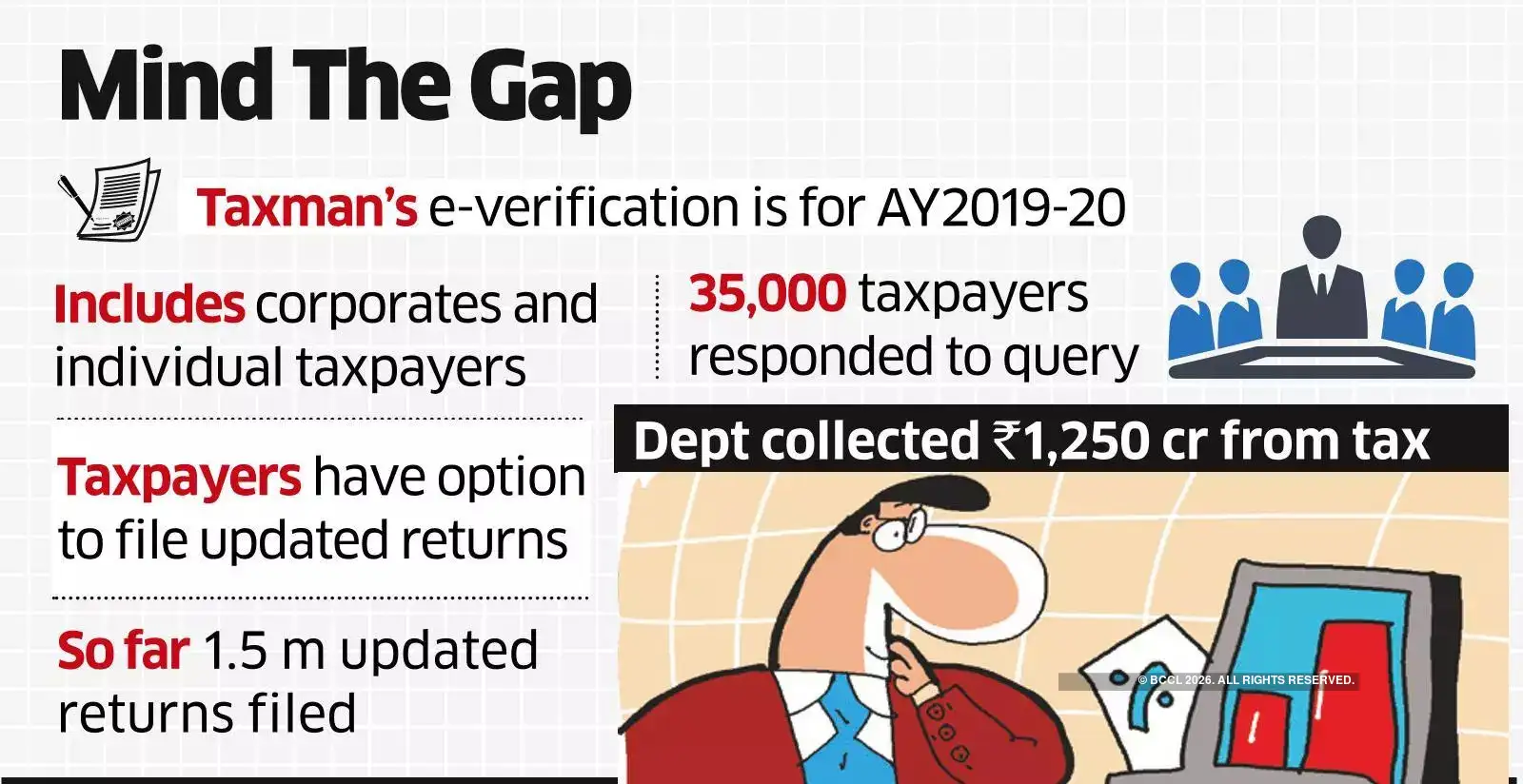CBDT chairman Nitin Gupta said the list included both corporate and individual income tax returns. He said these were flagged by the system as the high value transactions picked by the annual information system (AIS) did not match with the returns filed.
“About 68,000 cases pertaining to the 2019-20 fiscal have been taken up for e-verification based on risk management parameters set by the department, on a pilot basis,” Gupta said.

He added that of all the cases selected, in 35,000 cases, which is 56% of total cases, taxpayers have already satisfactorily replied to the notice or filed updated tax returns.
In the remaining 33,000 cases, no responses had been received.
The department will initiate action only if the taxpayer fails to file an updated return or do not send a response by March 31, 2023.
Taxpayers have time till March 31 to file updated returns for income earned in the 2019-20 fiscal.
So far the department has received about 1.5 million updated returns and ₹1,250 crore worth tax was collected.
The CBDT has made the e-verification process operational that allows the taxpayers to rectify and correct any discrepancies in their income tax returns filed and the information captured by the AIS, giving them opportunity to reply to the department.
Taxpayers will get 15 days to respond to the query and the whole process will be closed by 90 days, Gupta added.
Taxpayers can respond to the tax department providing an explanation for the mismatch. They also have the option to file an updated return.
“This is a tax-friendly initiative. Once an assessee files updated ITR, there are less chances of his/her case getting picked up for scrutiny or re-assessment,” Gupta said, adding that the move will minimise the number of tax litigation and improve tax compliance.
Gupta added that the department will take up more cases for e-verification in the next fiscal year as it already has a large database on the tax filers.








